Pointlessly boring
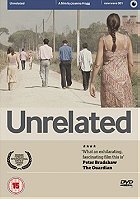 Posted : 14 years, 8 months ago on 4 July 2011 07:05
(A review of Unrelated (2007))
Posted : 14 years, 8 months ago on 4 July 2011 07:05
(A review of Unrelated (2007))Fucking hell. It's as if Joanna Hogg watched 'Y Tu Mamá También' and went "Oh no, that's terribly rude. Are you sure we can't make a proper English one and show them how it's done?" Sure, it may be a commentary on the uptight desperation of the English upper-classes, but if I wanted to know the minutiae of posh-woes and conversational claptrap I'd take a train to London and sit in a coffee shop for half an hour.
 0 comments, Reply to this entry
0 comments, Reply to this entry
Dog Face review
 Posted : 15 years, 2 months ago on 8 December 2010 02:54
(A review of Dog Face)
Posted : 15 years, 2 months ago on 8 December 2010 02:54
(A review of Dog Face)This is a sketch show from the creators of Peep Show, but it's rather repetitive. The gags don't vary greatly, and it's honestly a bit boring. There are a few different bits each show, but they aren't that spectacular either. The Russel Turner bit at least develops over the course of the episodes, but some of the sections have the exact same lines with a slightly different slant. It's alright, but nothing special.
 0 comments, Reply to this entry
0 comments, Reply to this entry
What?!
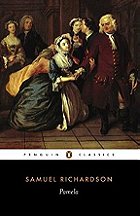 Posted : 15 years, 3 months ago on 10 November 2010 09:53
(A review of Pamela: Or, Virtue Rewarded (Penguin English Library))
Posted : 15 years, 3 months ago on 10 November 2010 09:53
(A review of Pamela: Or, Virtue Rewarded (Penguin English Library))[spoilers and swearing ahead]
'Virtue Rewarded', my arse. It's meant to be a reward when the man who tries repeatedly to touch you up and have his wicked way with you, then kidnaps you and stops you from contacting your relatives, wants you to marry him? During all this, Pamela is 15-16 years of age, and is writing about all this to her parents (whether or not all of it actually gets to them, at times, I know not). Surely if your 15 year old daughter kept telling you that the master of the house had attempted to rape her, you'd go and collect her straight away. Or, when you suspect he has indeed kidnapped her, instead of sending her to London as he has said, alert some sort of authority. Or is it that people in the eighteenth century really just didn't have any sense whatsoever? It's like the storyline from some master-maid hentai.
I found this book way too moralistic, which is common of the time, but more importantly, way too fucking ridiculous for words.
'Virtue Rewarded', my arse. It's meant to be a reward when the man who tries repeatedly to touch you up and have his wicked way with you, then kidnaps you and stops you from contacting your relatives, wants you to marry him? During all this, Pamela is 15-16 years of age, and is writing about all this to her parents (whether or not all of it actually gets to them, at times, I know not). Surely if your 15 year old daughter kept telling you that the master of the house had attempted to rape her, you'd go and collect her straight away. Or, when you suspect he has indeed kidnapped her, instead of sending her to London as he has said, alert some sort of authority. Or is it that people in the eighteenth century really just didn't have any sense whatsoever? It's like the storyline from some master-maid hentai.
I found this book way too moralistic, which is common of the time, but more importantly, way too fucking ridiculous for words.
 0 comments, Reply to this entry
0 comments, Reply to this entry
Tipping the Velvet review
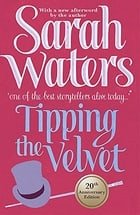 Posted : 17 years ago on 17 February 2009 05:51
(A review of Tipping the Velvet)
Posted : 17 years ago on 17 February 2009 05:51
(A review of Tipping the Velvet)Tipping the Velvet is quite the romp into a world of lesbianism in Victorian England, Waters' style of writing pulls you in from the very start, submerging the reader right into the world of the protagonist, Nancy Astley. The story is broken into three parts, the first being of a romantic vein, the second rather racy, and the third more settled while bringing the story to its resolution. As with any romance there is some degree of inevitability in the course of events, but I think that overall the story is a satisfying one that keeps the reader on their toes. The ending especially worked extremely well for me, as Nancy finally stopped running, and did not give in to the invitation by Kitty to come back to her and live a lie. Throughout Waters' plays with language, most prominently with words such as "gay" as they meant in the Victorian era (i.e. "happy") which provides a nice prod at the controversial lesbian theme of the book as a whole.
Overall I thought it a wonderful book, and will definitely be picking up her other novels, and watching the BBC adaptation of Tipping the Velvet rather soon.
Overall I thought it a wonderful book, and will definitely be picking up her other novels, and watching the BBC adaptation of Tipping the Velvet rather soon.
 0 comments, Reply to this entry
0 comments, Reply to this entry
Wristcutters: A Love Story review
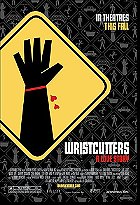 Posted : 17 years ago on 12 February 2009 11:02
(A review of Wristcutters: A Love Story)
Posted : 17 years ago on 12 February 2009 11:02
(A review of Wristcutters: A Love Story)Wristcutters: A Love Story is a little fantasy/road-trip adventure with a story akin, but not too similar, to The Wizard of Oz, set in an afterlife reserved for only those who kill themselves. I found it a charming piece of work, and I was pleasantly surprised by the appearance of Tom Waits and the use of Gogol Bordello's music as piece of the background story. The use of generally unknown/less-known actors works very nicely and I found the performances of each rather well done. True, the story is a tad predictable most of the time. But this isn't really too much of an issue for me as the film is carried out very well overall and I think it actually helps the simplicity of the work as a whole to not try to surprise the viewers with something that just wouldn't fit.
One last thing though: Keep in mind that you really need to view this as a fantasy work (like The Wizard of Oz) rather than a religious concept of a form of purgatory, as this helps to get the mood of the film right. Its actually rather light-hearted for being a film about suicide. ;) Enjoy.
One last thing though: Keep in mind that you really need to view this as a fantasy work (like The Wizard of Oz) rather than a religious concept of a form of purgatory, as this helps to get the mood of the film right. Its actually rather light-hearted for being a film about suicide. ;) Enjoy.
 0 comments, Reply to this entry
0 comments, Reply to this entry
Theme Hospital review
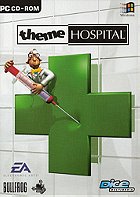 Posted : 17 years, 1 month ago on 27 January 2009 11:33
(A review of Theme Hospital)
Posted : 17 years, 1 month ago on 27 January 2009 11:33
(A review of Theme Hospital)I've been replaying this game again recently and I've lost track of how many times I've done so in the past. Its one of these great games of my childhood that I could never get enough of and come back to now and still love to play. It may be one of hundreds in a large genre, but I've never seen the exact idea replicated anywhere else and I'm glad of it as it is quite close to perfect as it is. It is witty, challenging in later levels, fun to play, and even though the levels don't change the replay value is still there as there is always the challenge to yourself of constructing an even better hospital than the last time. And then theres the fact that since its an older game it doesn't take up so many resources on your computer, thus playing brilliantly on even some of the crappest machines out there today. Ah, the joys of retro gaming.
I can see myself playing this many more times in the future. This is one game that, for me, has lasted the test of time.
I can see myself playing this many more times in the future. This is one game that, for me, has lasted the test of time.
 0 comments, Reply to this entry
0 comments, Reply to this entry
Labyrinth
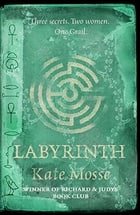 Posted : 17 years, 2 months ago on 24 December 2008 08:13
(A review of Labyrinth)
Posted : 17 years, 2 months ago on 24 December 2008 08:13
(A review of Labyrinth)This book is a historical fiction grail thriller/mystery following in the wake of such works as The Da Vinci Code, and though Mosse is definately a fine weaver of stories the overall skill of the writing produced here is not great, as with its forerunner mentioned above.
I found the work at times to jar with the flow of reading when I had to question not only Mosse's vocabulary choice, but the validity of the actions represented. As it is a huge work, nearly 700 pages in total, there are bound to be mistakes where the editting has failed, but I would expect more from a writer than to contradict themselves mere paragraphs apart. Mosse also represents herself as a somewhat lacking scribe, as the quality of her language use is often lower than it could be. I found myself questioning her grammar frequently and her overuse of words and phrases more often. I don't claim to be perfect myself, but this is the kind of thing which can interrupt a good reading of a novel. The way the author started and ended using the present tense to write also didn't sit with me well, and I'm glad that this was disregarded for the work as a whole.
Nonetheless, Labyrinth is a decent historical fiction/mystery read (and a much better grail thriller than The Da Vinci Code). The story itself is interesting and involving for the reader, as any mystery should be, though I found myself less interested in the present-day Alice story than her historical counterpart. Not a bad read, but not something I would seek out again, and I probably won't continue to read her writing unless I hear her writing style has improved.
I found the work at times to jar with the flow of reading when I had to question not only Mosse's vocabulary choice, but the validity of the actions represented. As it is a huge work, nearly 700 pages in total, there are bound to be mistakes where the editting has failed, but I would expect more from a writer than to contradict themselves mere paragraphs apart. Mosse also represents herself as a somewhat lacking scribe, as the quality of her language use is often lower than it could be. I found myself questioning her grammar frequently and her overuse of words and phrases more often. I don't claim to be perfect myself, but this is the kind of thing which can interrupt a good reading of a novel. The way the author started and ended using the present tense to write also didn't sit with me well, and I'm glad that this was disregarded for the work as a whole.
Nonetheless, Labyrinth is a decent historical fiction/mystery read (and a much better grail thriller than The Da Vinci Code). The story itself is interesting and involving for the reader, as any mystery should be, though I found myself less interested in the present-day Alice story than her historical counterpart. Not a bad read, but not something I would seek out again, and I probably won't continue to read her writing unless I hear her writing style has improved.
 0 comments, Reply to this entry
0 comments, Reply to this entry
Paradise Lost
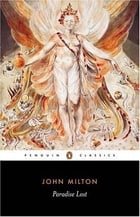 Posted : 17 years, 2 months ago on 12 December 2008 04:08
(A review of Paradise Lost (Penguin Classics Series))
Posted : 17 years, 2 months ago on 12 December 2008 04:08
(A review of Paradise Lost (Penguin Classics Series))For all of Milton's religious and socially backward personal views I actually loved reading Paradise Lost, but not for the way Milton probably ever intended it to be looked at. There is so much to the work which make readings so varied and abundant with meaning ready and waiting to be plucked (reference intended).
I was reading Milton's epic poem for my English Literature class and preparing to write an exam on it (done earlier today), so I was taking especial care to read with a couple of core specific ideas in mind in conjunction with the work (especially ideology, as that was the title of the course). In my personal reading of the book I ended up considering a lot to do with gender roles and free will.
I liked Milton's utilisation of blank verse, until then never used in English narrative poetry, especially to this extent, though used in drama frequently. You do have to remember that it is a poem, and thus it does often require either reading outloud or listening to an audiobook to get the metre and the enjambed flow of the language and imagery. I ended up actually lying in the bath reading it outloud to myself with Apocalyptica playing in the background once or twice. The first 3 or 4 books arguably are the most interesting of the 12 it is divided into, and the last 4 or 5 is almost entirely composed of conversation between Adam and the archangel Michael, and this does drag on a bit (which is where an audio version helped me greatly).
Taking this into consideration it is no wonder that the Romantics believed Satan to be the true protagonist of the poem, who has fallen and ventures out on a journey to revenge his fate and that of the other fallen angels. He is successful in his task, but ultimately fails as they are punished again. I prefer to see him as a false protagonist figure (much akin to Marion Bates in Alfred Hitchcock's Psycho) who is almost wholey abandoned as a key figure as Adam and Eve are more introduced. I much like William Blake's idea that "[Milton] was a true Poet, and of the Devil's party without knowing it," which backs the reading of many of the Romantics that Satan is the real protagonist, and that there are a multitude of other possible readings of the text other than what Milton actually intended, which was to "justify the ways of God to men."
I spent much of my time considering the ideas of fate and free will within the book, and in my reading I came to the general opinion of fate being present throughout even when God predeicts that Adam and Eve will fall, but by free will and not by fate. In my particular reading it would also support an anti-Milton-esque view on the submission and weakness of women, which I found particularily interesting, but that really isn't the type of topic that many will find interesting here...
God as a character I found rather banal and stiff. Milton goes to such efforts to make his Satan animated and an active hero to his own cause that in comparison God just seems droll. Satan definately provides more literary and plot interest throughout the book; God provides more of the theological questioning behind the events of the book, and Milton's particular depictions of characters.
Thats just some of my thoughts, but I have to sum up that Paradise Lost is an epic poem worth the reading. It sparks much in the realm of philosophical and theological debate and pondering, even just in a literary context (personally I am not religious in the slightest but as characters they are very interesting when refering to religious texts). Anyone interested in literature should give this one a read, though I suggest getting an [Link removed - login to see] version to help with at least the first reading. ;)
I was reading Milton's epic poem for my English Literature class and preparing to write an exam on it (done earlier today), so I was taking especial care to read with a couple of core specific ideas in mind in conjunction with the work (especially ideology, as that was the title of the course). In my personal reading of the book I ended up considering a lot to do with gender roles and free will.
I liked Milton's utilisation of blank verse, until then never used in English narrative poetry, especially to this extent, though used in drama frequently. You do have to remember that it is a poem, and thus it does often require either reading outloud or listening to an audiobook to get the metre and the enjambed flow of the language and imagery. I ended up actually lying in the bath reading it outloud to myself with Apocalyptica playing in the background once or twice. The first 3 or 4 books arguably are the most interesting of the 12 it is divided into, and the last 4 or 5 is almost entirely composed of conversation between Adam and the archangel Michael, and this does drag on a bit (which is where an audio version helped me greatly).
Taking this into consideration it is no wonder that the Romantics believed Satan to be the true protagonist of the poem, who has fallen and ventures out on a journey to revenge his fate and that of the other fallen angels. He is successful in his task, but ultimately fails as they are punished again. I prefer to see him as a false protagonist figure (much akin to Marion Bates in Alfred Hitchcock's Psycho) who is almost wholey abandoned as a key figure as Adam and Eve are more introduced. I much like William Blake's idea that "[Milton] was a true Poet, and of the Devil's party without knowing it," which backs the reading of many of the Romantics that Satan is the real protagonist, and that there are a multitude of other possible readings of the text other than what Milton actually intended, which was to "justify the ways of God to men."
I spent much of my time considering the ideas of fate and free will within the book, and in my reading I came to the general opinion of fate being present throughout even when God predeicts that Adam and Eve will fall, but by free will and not by fate. In my particular reading it would also support an anti-Milton-esque view on the submission and weakness of women, which I found particularily interesting, but that really isn't the type of topic that many will find interesting here...
God as a character I found rather banal and stiff. Milton goes to such efforts to make his Satan animated and an active hero to his own cause that in comparison God just seems droll. Satan definately provides more literary and plot interest throughout the book; God provides more of the theological questioning behind the events of the book, and Milton's particular depictions of characters.
Thats just some of my thoughts, but I have to sum up that Paradise Lost is an epic poem worth the reading. It sparks much in the realm of philosophical and theological debate and pondering, even just in a literary context (personally I am not religious in the slightest but as characters they are very interesting when refering to religious texts). Anyone interested in literature should give this one a read, though I suggest getting an [Link removed - login to see] version to help with at least the first reading. ;)
 0 comments, Reply to this entry
0 comments, Reply to this entry
Beautiful collection
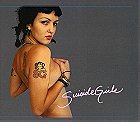 Posted : 17 years, 7 months ago on 14 July 2008 05:13
(A review of Suicide Girls)
Posted : 17 years, 7 months ago on 14 July 2008 05:13
(A review of Suicide Girls)Dating from back in 2004 this book features a lot of the older and some now defunct SuicideGirls from the alternative erotica website of the same name. Only having come into proper contact with the concept in the last year I cannot comment on the book as related to the controversies quarrels that arose some while back, causing some of the models to leave, some migrating to GodsGirls, so rather I am leaving all that aside and concentrating on the book as a piece of art, representing the culminating experience, at the time, of Missy Suicide and all the models pictured.
The book is dived into two main sections: photos taken of the models by Missy, and self-taken photos along with profile-like excerpts. The first section features a nice range of pictures, showing the varying moods of the sets from playful, sumptuous, energetic, moody, artistic and a plethora besides. The second section also has some nice pictures, but its more about the self-expression of the models, featuring some of the stories behind their joining the site and choosing to freely show their bodies on the internet. It is here that the reader can get a real view into the down-to-earth stance that is the basis of the SuicideGirls concept. It may be pornography, but its also art, taking the image of an old fashioned "pin-up girl" as its integral form and throwing it together with music and life cultures that are not necessarily considered the norm, thus giving both the models and the audience/members an outlet of feeling part of something bigger and not alone in how they think/feel/look.
This is a book which documents a revolution in alternative erotica, while at the same time displaying some fantastic eye candy to the reader in a classy and stylish way. A beautiful collection of images and thoughts.
The book is dived into two main sections: photos taken of the models by Missy, and self-taken photos along with profile-like excerpts. The first section features a nice range of pictures, showing the varying moods of the sets from playful, sumptuous, energetic, moody, artistic and a plethora besides. The second section also has some nice pictures, but its more about the self-expression of the models, featuring some of the stories behind their joining the site and choosing to freely show their bodies on the internet. It is here that the reader can get a real view into the down-to-earth stance that is the basis of the SuicideGirls concept. It may be pornography, but its also art, taking the image of an old fashioned "pin-up girl" as its integral form and throwing it together with music and life cultures that are not necessarily considered the norm, thus giving both the models and the audience/members an outlet of feeling part of something bigger and not alone in how they think/feel/look.
This is a book which documents a revolution in alternative erotica, while at the same time displaying some fantastic eye candy to the reader in a classy and stylish way. A beautiful collection of images and thoughts.
 0 comments, Reply to this entry
0 comments, Reply to this entry
Childrens Classic
 Posted : 17 years, 7 months ago on 14 July 2008 05:06
(A review of Where's Wally Now?)
Posted : 17 years, 7 months ago on 14 July 2008 05:06
(A review of Where's Wally Now?)This, along with the other books in the series, is one of my favourite books from my childhood. And as far as activity books go, I remember getting a LOT out of this book in terms of entertainment value and time consumed. It may be extremely easy for me to find Wally (that’s Waldo to you Americans and otherwise) nowadays, especially after thoroughly trouncing the book over a hundred times, but going back over the lists of objects to find within the landscapes can still stump me occasionally. I truly love this book and look back on it fondly.
If only they made puzzle books for kids like this nowadays. *sigh* Screw new books, give this one to your kids and let them learn the joys of finding out just where Wally is.
If only they made puzzle books for kids like this nowadays. *sigh* Screw new books, give this one to your kids and let them learn the joys of finding out just where Wally is.
 0 comments, Reply to this entry
0 comments, Reply to this entry
 Login
Login
 Home
Home 193 Lists
193 Lists 116 Reviews
116 Reviews Collections
Collections